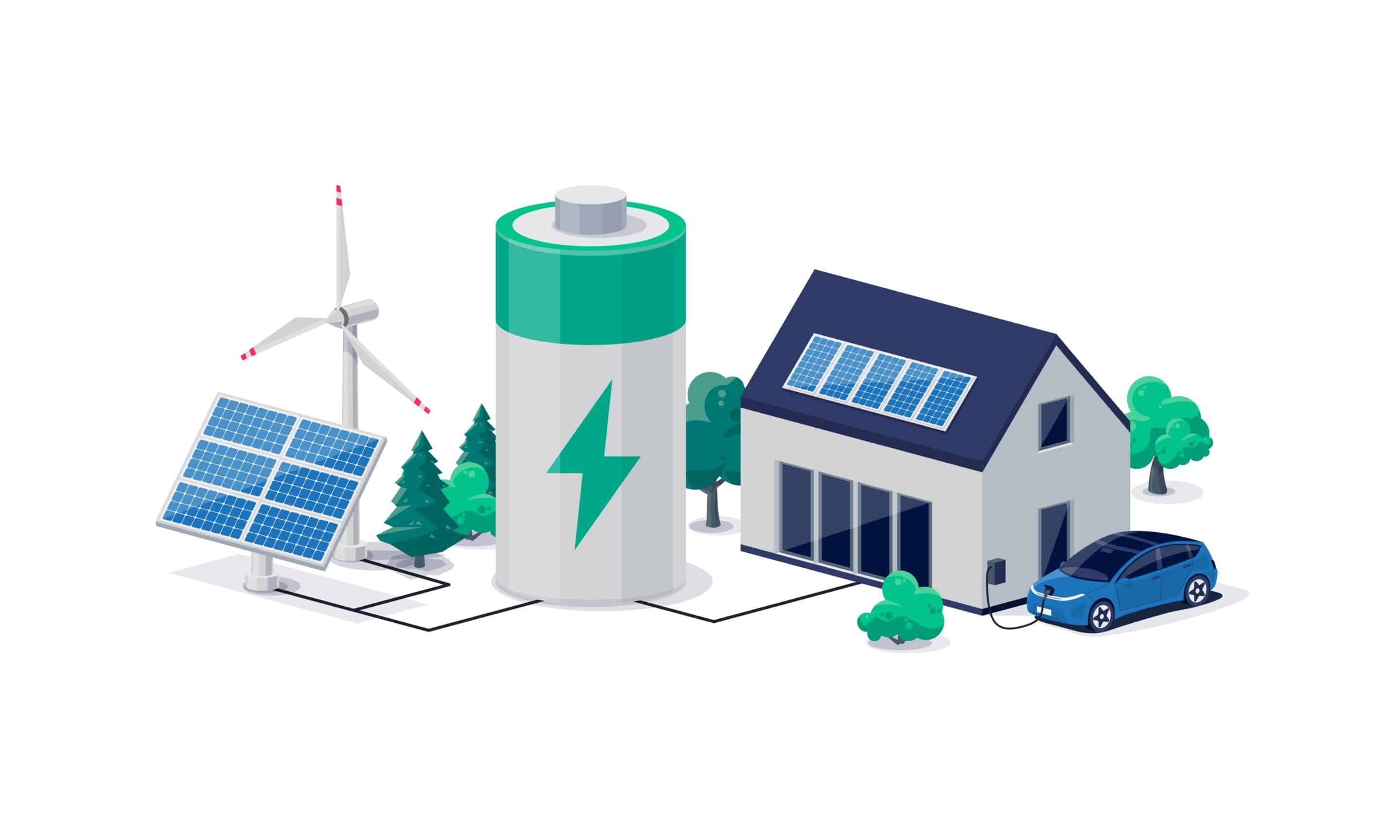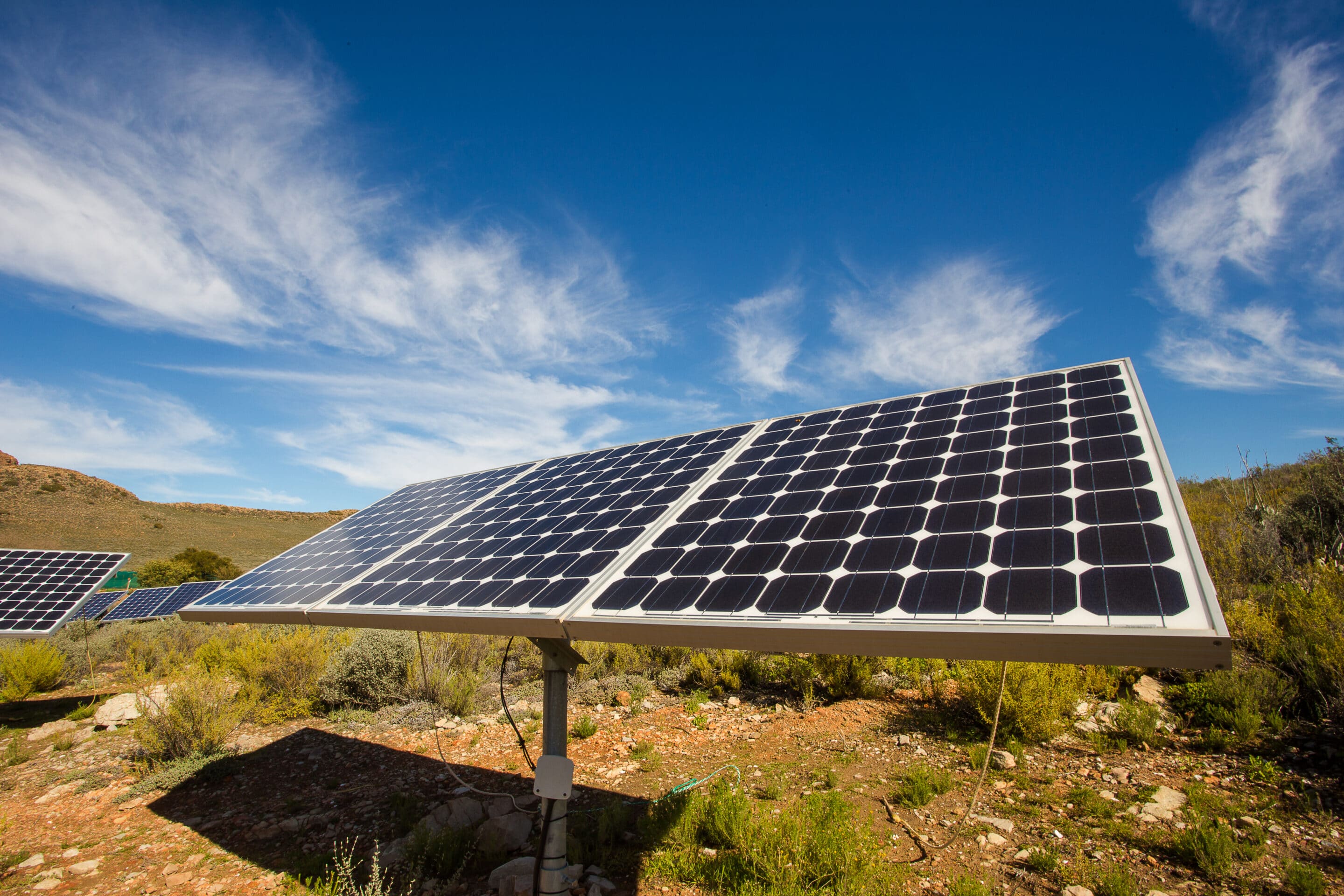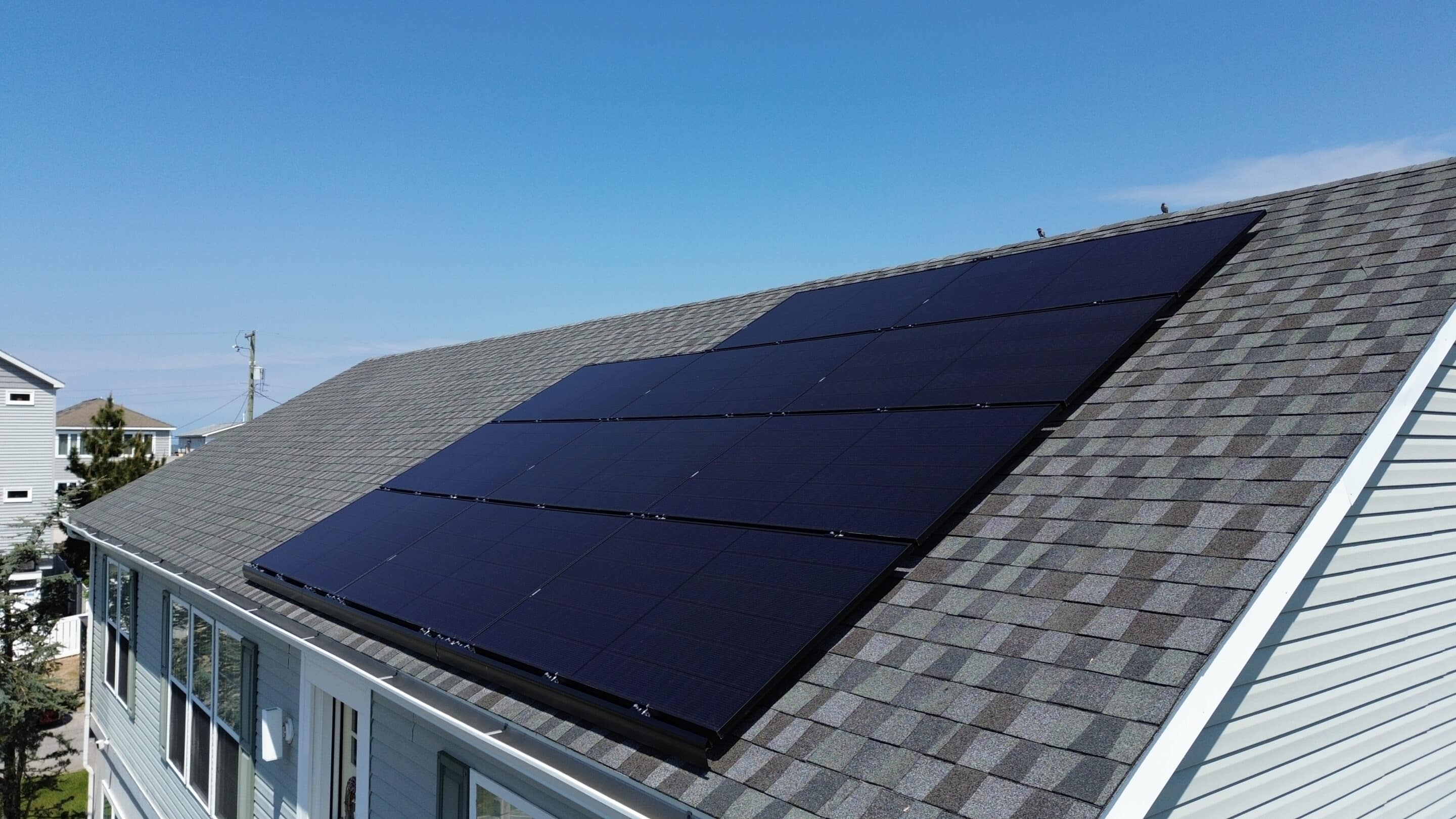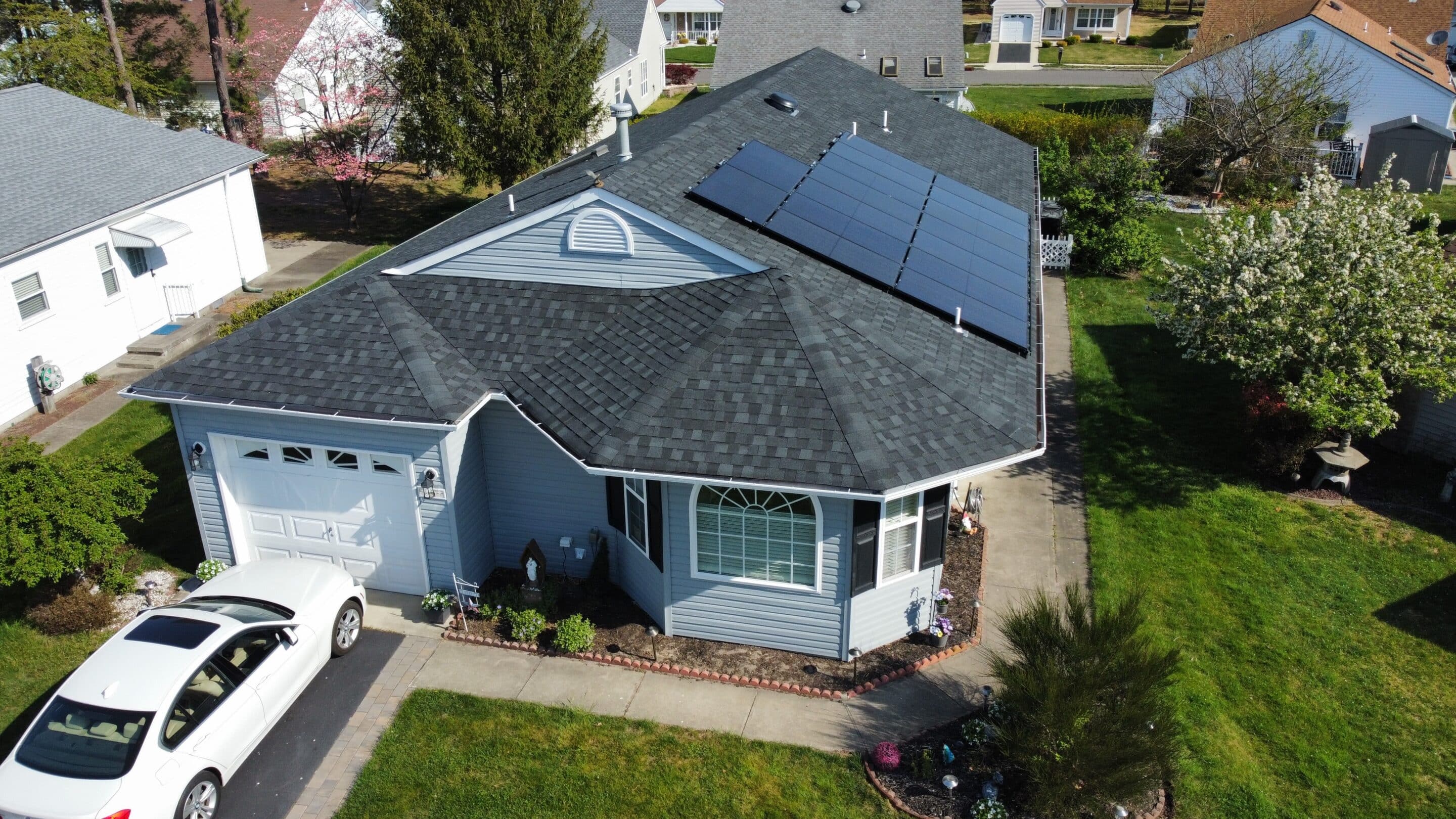
Off-Grid vs. On-Grid Solar Systems: Which One is Right for You?
A solar energy system can be an excellent investment for your household, allowing you to save money on utilities and reduce your overall emissions. However, not all systems are the same in design or function. You’ll need to carefully consider off-grid vs. on-grid solar systems to find the right solution for your home.
The Most Common Types of Solar Power Systems
Solar energy has a variety of unique applications for residential, commercial, and industrial use. When looking for solar power for your home or business, you’re likely to choose between two primary types of systems: off-grid and on-grid.
These systems are defined by how they interact with existing electrical infrastructure. Each has its benefits and limitations, which makes it uniquely suited to different situations.
To compare off-grid to on-grid solar systems and make an informed decision, you’ll need to consider all of the primary benefits you stand to receive from solar energy. These options perform differently across these categories, and you must weigh them carefully to make the right choice for your unique circumstances.

How Off-Grid Solar Systems Work
The critical distinction regarding off-grid vs. on-grid solar systems is the presence or lack of a connection to the electrical grid. Off-grid solar panel systems have no connection to the grid. This means that they can be installed anywhere, regardless of existing infrastructure.
Your off-grid solar energy system will rely on a series of solar panels that can be mounted to a roof, pole, other structures, or the ground. The panels generate electricity from solar energy and pass it on to the rest of the system.
A charge controller manages the electrical output to prevent damage to other components. Your off-grid solar system will have a battery bank that stores power from the panels. This energy reservoir makes maintaining a constant electricity supply possible, even at night.
The electricity from your solar energy system is direct current (DC). However, household outlets and other components of residential electrical systems rely on alternating current (AC). An off-grid inverter converts DC to AC for practical use.

How On-Grid Solar Systems Work
If you live somewhere with ready access to an electrical grid, you can also install an on-grid solar power system. These systems integrate with your home’s existing electrical infrastructure to supply energy generated from sunlight.
Like in an off-grid system, several solar panels will be installed somewhere on your property. That said, you won’t necessarily have a battery bank. While an on-grid system can be installed with battery backup (a type of hybrid solar power system), this isn’t strictly necessary.
A solar power on-grid system still generates electricity in DC, using an inverter to convert DC to AC. However, that current can then be sent either to your home or the electrical grid, depending on demand. Your system will include a power meter to precisely measure how much energy goes where.
The grid tie system makes it possible to alleviate energy demand by using your solar panels while the sun shines. At night or on cloudy days, you’ll receive power from the grid. If your panels generate more power than you need, that electricity will go back to the grid.
Choosing the Right Solar Solution for Your Needs
As you can see, these two types of solar energy systems have a variety of practical differences. How, then, can you tell which is right for you? The best way is to work with trusted solar professionals.
Designing and installing a solar energy system is a complex process. There are practical design concerns, local permits and regulations, and incentive and credit programs to consider. While your next step will be to reach out to the professionals, you can consider these criteria when comparing your options.
On-Grid vs. Off-Grid Installation Costs
The initial installation cost is one of the most important elements when choosing a solar energy system. The size of your investment today will play a key role in determining how long it takes to pay off your solar panels. You should carefully balance this cost with energy savings and financing options.
In general, off-grid solar systems have higher initial installation costs. This is because they require additional components compared to on-grid systems. One of the most substantial costs is the battery bank — providing enough storage to keep your home running when the sun isn’t shining can require significant investment.
Each solar installation is unique, though, with many incentives and financing options. You’ll need to get a quote on installation to truly understand your options. Some homeowners also choose to install battery backups for on-grid systems, which somewhat levels out the price difference.
On-Grid vs. Off-Grid Solar: Excess Energy
A properly sized solar energy system will be able to meet your home’s energy demands consistently. However, ensuring reliability means sizing your system to generate excess electricity at certain times. What happens to this excess differs between the two types.
In an off-grid system, excess production goes to your battery bank. Ideally, you’ll have a system large enough to meet your daily needs while charging the batteries at night. If you still have energy left over after charging the batteries, the charge controller stops generation to prevent overcharging.
In an on-grid system, you draw electricity from the grid to meet demand at night or in other scenarios where your panels aren’t meeting your demands. Excess energy will be redirected to the grid if your panels produce more than your demands. You’ll receive a credit on your energy bill due to net metering, which can help offset your total utility costs.
Facing Power Outage Scenarios
Solar panels are often desired for their benefits, cost-saving, and sustainability advantages, but some choose them for energy independence. That said, not all systems function similarly when the grid goes down.
An off-grid system will keep running regardless of any power outages. As long as the sun keeps shining, you can rely on the output of your solar energy system and its battery backup.
By contrast, an on-grid system won’t power your home when the grid goes down. While the panels can create energy, they shut off in grid failure events. This prevents energy from passing through power lines while crews carry out repairs.
Fortunately, it’s possible to maintain power in outage scenarios with an on-grid system by installing a battery backup. This hybrid system lets you have the best of both worlds, benefiting from net metering while enjoying energy independence during outages.
Overall Energy Savings
Energy savings is the most crucial factor for people looking to install solar energy systems. The amount you save on your energy bills will determine how quickly you pay off your initial installation and define which financing conditions are worthwhile.
Both on-grid and off-grid systems have the potential to significantly reduce your energy costs. Even so, an on-grid system won’t necessarily be able to reduce your bill to zero.
A grid tie system that’s perfectly sized to offset your nightly usage in excess generation with net metering will still incur some costs. You’ll have various flat fees on your bill with the electricity company, even if your net use is zero.
With an off-grid system, you won’t face any energy costs because you rely solely on your solar energy system and battery bank. The flip side is that this also means you won’t have grid access when you need it.
Understanding your potential savings requires a closer look at the actual design of your solar energy solution. Talking with a solar energy professional is the best way to determine how to maximize your savings.

Finding the Perfect Solar Energy System for Your Home
Are you looking to use solar power to save on energy costs and contribute to a greener environment? When designing and installing a solar energy system, relying on qualified professionals with expertise and experience is crucial. At EMT Solar, we specialize in handling every aspect of solar installation, from design to permitting, installation, and connection.
By reaching out to us for a consultation, you can discuss your specific solar energy needs and goals. Our team of experts will thoroughly evaluate your property, considering factors such as location, energy consumption, and roof orientation. This evaluation will help us provide you with tailored recommendations to help you make an informed decision regarding the off-grid vs. on-grid solar systems debate.
Take advantage of the opportunity to enjoy the benefits of solar panels. Contact EMT Solar today to schedule a consultation and receive a free quote for your customized, state-of-the-art solar energy system.
